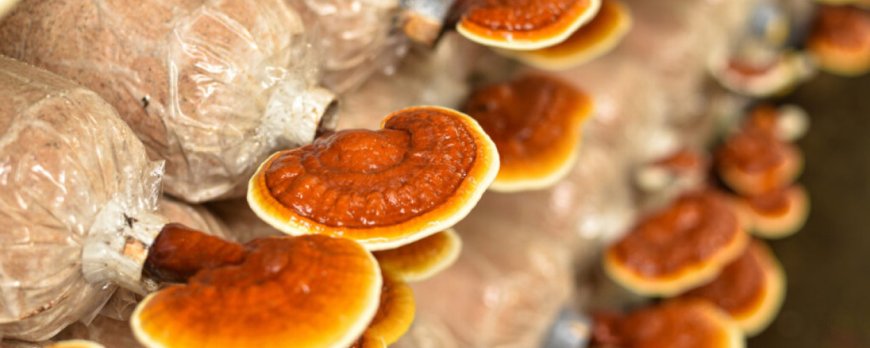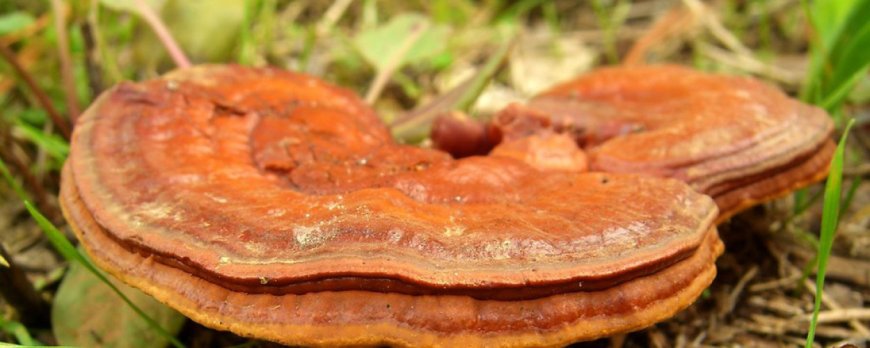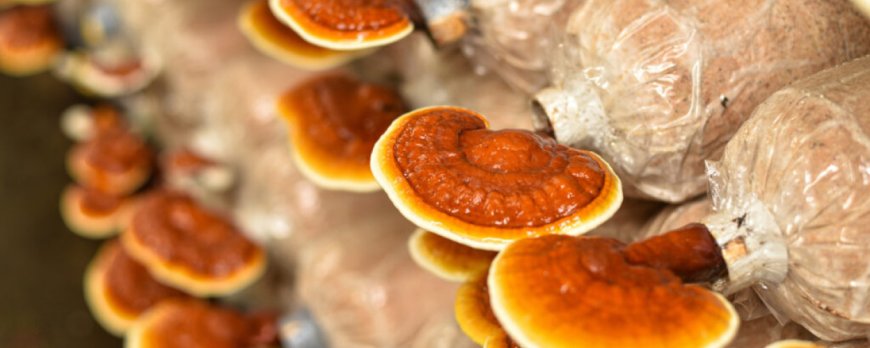When should you not take reishi?
Explore the circumstances when you should not take reishi. Learn about potential interactions, side effects, and contraindications of reishi use.

When should you not take reishi?
Reishi is a type of mushroom that has been used for centuries in traditional Chinese medicine for its potential health benefits. While reishi is generally considered safe for most people, there are certain situations where its use may not be advisable. In this section, we will explore the potential contraindications, side effects, interactions, and precautions associated with the use of reishi. We will also touch upon the safety concerns, health risks, and considerations for individuals with specific medical conditions or those taking certain medications.
Key Takeaways:
- Reishi may not be safe for everyone to take.
- Potential contraindications, side effects, and interactions should be carefully considered before using reishi.
- Individuals with specific medical conditions or those taking certain medications should consult with a healthcare professional before incorporating reishi into their wellness routine.
- There are limited studies regarding the safety and efficacy of reishi during pregnancy or breastfeeding, and caution should be exercised in its use during this time.
- It is important to be aware of the potential risks and benefits of reishi use in order to make informed decisions about its incorporation into a wellness routine.

Contraindications of reishi use
While reishi is generally considered safe for consumption, there are certain situations where it is not advisable to take this herb. Here are some of the contraindications of reishi use:
Autoimmune diseases
Individuals with autoimmune diseases should avoid reishi as it may stimulate the immune system, potentially exacerbating their condition.
Bleeding disorders
Reishi may increase the risk of bleeding, making it unsuitable for individuals with bleeding disorders or those taking blood-thinning medications.
Low blood pressure
Reishi may lower blood pressure, and therefore, individuals with low blood pressure should avoid this herb.
Surgery
Reishi may increase the risk of bleeding and interfere with blood clotting, which can be problematic for individuals undergoing surgery. It is recommended to stop taking reishi at least two weeks before any scheduled surgery.
Allergies
Individuals with known allergies to mushrooms or other fungi should avoid reishi use, as it may cause an allergic reaction.
It is important to note that these contraindications are not exhaustive, and individuals should always consult with a healthcare professional before taking reishi to ensure it is safe for them.
Potential Side Effects of Reishi
While reishi is generally considered safe for most individuals, there are some potential side effects that may arise from its use.
These side effects can vary in severity, and may include:
- Upset stomach and digestive issues
- Headaches
- Dizziness
- Insomnia
- Low blood pressure
- Allergic reactions
It is important to note that the severity and likelihood of these side effects may vary depending on the individual and their specific health condition.
Additionally, it is important to be aware of the quality and purity of the reishi product being used, as contaminants or adulterants may influence the occurrence of potential side effects.
If you experience any adverse reactions or side effects while taking reishi, it is crucial to stop use immediately and consult with a healthcare professional.
Interactions with other medications and substances
One of the potential risks associated with reishi use is the potential for interactions with other medications and substances. While there is limited research available on the topic, it is recommended to exercise caution when taking reishi alongside certain drugs or supplements.
Reishi may interact with medications that affect blood clotting, such as aspirin, warfarin, or heparin. It is also advisable to avoid taking reishi with immunosuppressant drugs, as reishi may enhance their effects. Additionally, reishi may interact with sedatives or medications that cause drowsiness, potentially increasing the risk of side effects.
When it comes to supplements and other herbs, reishi may interact with those that have similar effects, such as other medicinal mushrooms or herbs that affect blood clotting. It is also noteworthy that combining reishi with caffeine may cause increased jitteriness or anxiety.
It is important to consult with a healthcare professional before taking reishi in combination with any medications or supplements, to ensure safety and avoid any potential adverse effects.

Precautions for Reishi Use
When incorporating reishi into your wellness routine, it is important to take certain precautions to ensure your safety and wellbeing. Here are some guidelines to keep in mind:
Dosage
Reishi supplements are available in various forms, such as capsules, powders, or extracts. It is important to follow the recommended dosage instructions provided by the product manufacturer or your healthcare professional. Avoid exceeding the recommended dose, as this may increase the risk of adverse effects.
Duration of Use
While reishi is generally considered safe for short-term use, there is limited information available on the long-term effects of reishi consumption. It is recommended to use reishi supplements for no longer than 3 months at a time. Consult with a healthcare professional if you plan to use reishi for longer durations.
Medical Conditions
If you have an underlying medical condition, it is important to consult with a healthcare professional before taking reishi supplements. Reishi may interact with certain medications or exacerbate certain medical conditions. Individuals with bleeding disorders, low blood pressure, or autoimmune diseases should exercise caution when using reishi.
Pregnancy/Breastfeeding
Reishi supplements are not recommended for pregnant or breastfeeding women, as there is limited research available on the potential risks associated with reishi use during pregnancy or breastfeeding. It is advisable to consult with a healthcare professional before using reishi in these circumstances.
Allergic Reactions
Individuals with allergies to mushrooms or other fungal species should avoid using reishi supplements, as they may be more prone to allergic reactions. If you experience any signs of an allergic reaction, such as hives, swelling, or difficulty breathing, discontinue use and seek medical attention immediately.
By taking these precautions into account, you can safely and responsibly incorporate reishi into your wellness routine.
Safety Concerns and Health Risks of Reishi
While reishi is generally considered safe for most people when taken in appropriate doses, there are some safety concerns and potential health risks to consider.
Individuals with autoimmune conditions, bleeding disorders, or those who have had recent surgery should exercise caution when taking reishi, as it may affect the immune system or increase the risk of bleeding.
Reishi may also lower blood pressure and blood sugar levels, so individuals with low blood pressure or diabetes should monitor their levels closely while taking reishi.
Some users have reported mild side effects such as upset stomach, dry mouth, or skin rashes. In rare cases, reishi may cause liver toxicity, so it is important to monitor liver function while taking reishi and discontinue use if any symptoms of liver damage arise.
Additionally, if you are pregnant or breastfeeding, it is best to avoid using reishi due to the lack of safety data on its use during these periods.
While further research is needed to fully understand the potential health risks of reishi, it is important to be aware of the possible side effects and precautions before using this herb as a complementary or alternative therapy.
Reishi use in medical conditions
Reishi has been used for centuries in traditional Chinese medicine for its various health benefits. In recent years, its popularity has increased in the Western world, and many people are considering it as a complementary therapy for various medical conditions. While research on reishi's efficacy is still limited, there is evidence to suggest that it may be useful in managing certain health issues.
Chronic Fatigue Syndrome
One study found that patients with chronic fatigue syndrome who took a reishi extract had reduced fatigue and anxiety levels, as well as improved quality of life.
Cancer
Reishi contains compounds that may have anti-cancer properties. Some studies suggest that reishi may slow the growth of certain types of cancer cells and enhance immune function in cancer patients. However, more research is needed to confirm these results.
Cardiovascular Disease
Reishi may have some potential cardiovascular benefits, such as reducing high blood pressure and cholesterol levels. One study found that reishi extract improved blood flow and reduced artery stiffness in healthy adults.
Respiratory Conditions
Reishi may be helpful in managing respiratory conditions such as asthma and bronchitis. A study found that reishi extract improved lung function in patients with asthma.
Diabetes
Some studies have shown that reishi may have anti-diabetic effects, such as reducing blood sugar levels. However, more research is needed to confirm these benefits.
It is important to note that while some studies suggest that reishi may be useful in managing certain medical conditions, more research is needed to confirm these findings. Additionally, reishi should not be used as a substitute for conventional medical treatment. Individuals with medical conditions should consult with a healthcare professional before incorporating reishi into their treatment plan.

Reishi and Medications
It is essential to exercise caution when taking reishi alongside other medications as potential interactions and effects may occur. Reishi may increase the risk of bleeding and should not be taken with blood-thinning medications such as warfarin or aspirin. Moreover, reishi may increase the risk of low blood sugar when taken with diabetes medications, leading to hypoglycemia.
Reishi may also interact with immunosuppressant drugs, increasing the risk of infections, and should not be taken with sedatives or anti-anxiety medications as it may cause excessive drowsiness and impair motor functions. Additionally, it is not recommended to take reishi with chemotherapy medications as it may interfere with their effectiveness.
Any individual taking medication should consult with a healthcare professional before incorporating reishi into their wellness routine. A healthcare professional can advise on the potential risks and benefits of combining reishi with specific medications and the appropriate dosage and duration of use.
Conclusion:
When considering the use of reishi, it is crucial to be aware of potential interactions with other medications. Consultation with a healthcare professional is essential to mitigate the risks and manage the use of reishi alongside other medications safely.
Reishi and Pregnancy
The use of reishi mushrooms during pregnancy is a topic of concern due to limited research on its effects on fetal development and its potential to cause harm. Therefore, pregnant and breastfeeding women should exercise caution and avoid taking reishi without consulting with a healthcare professional.
While there is limited data on the safety of reishi during pregnancy and breastfeeding, some studies suggest that it may have potential benefits for both the mother and the fetus. For instance, reishi has been shown to have immunomodulatory and anti-inflammatory properties, which may help reduce the risk of infection and inflammation during pregnancy. Additionally, it may help regulate blood pressure and blood sugar levels, which are crucial for maintaining a healthy pregnancy.
However, the potential risks associated with the use of reishi during pregnancy and breastfeeding cannot be overlooked. According to some studies, reishi may have anti-estrogenic effects which can interfere with normal hormonal balance and lead to miscarriage or birth defects. Additionally, there is a potential risk of contamination with heavy metals or other environmental toxins that may be harmful to the developing fetus.
Pregnant and breastfeeding women should speak with their healthcare provider before taking reishi or any other herbal supplement. Your healthcare provider can help you weigh the potential risks and benefits of reishi and determine whether it is appropriate for you to use during pregnancy or while breastfeeding.
- To sum up, pregnant and breastfeeding women should avoid the use of reishi unless recommended by a healthcare professional.
Conclusion
When it comes to natural remedies like reishi, it is important to exercise caution and be aware of the potential risks and contraindications associated with use. While reishi can provide a range of benefits and has been used for centuries in traditional medicine, it is not without its limitations.
Individuals with certain medical conditions, those taking certain medications, or pregnant and breastfeeding women should be particularly cautious when considering reishi as a component of their wellness routine. It is always advisable to consult with a healthcare professional before using any new supplements or alternative therapies.
Overall, with careful consideration and professional guidance, reishi can be a valuable addition to a holistic approach to wellness.






























































































































